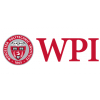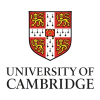Snabbfakta
-
- Moffat
Ansök senast: 2025-01-30
Research Associate in Pollinator Microbial Ecology - London
Research Associate in Pollinator Microbial Ecology
A high number of candidates may make applications for this position, so make sure to send your CV and application through as soon as possible.
Job Type: Full-Time.
Starting Salary: £48056 - £56345 per annum plus benefits
To find out more about the job please click the ‘apply for job’ button to be taken to Imperial job siteAbout the role
The Graystock Lab at the Silwood Park Campus is seeking a microbial ecologist interested exploring the microbiomes of pollinators with the ambition to develop/engineer microbial communities that may protect bees from exposure to harmful stressors. The project aims to 1) Improve our understanding of microbe-host-environment functional interactions 2) explore host-microbiome evolution in natural and lab-based systems 3) Develop microbiomes that can improve bee health in a given environment 4) significantly advance our understanding of the bee-microbiome holobiont to facilitate pollinator health optimisation. This project represents a multi-disciplinary approach as part of the Leverhulme Centre for the holobiont, collaborating specifically with Professor Quinn McFrederick (University of California Riverside) and Professor Marc-Emmanuel Dumas (Imperial College London).
The project stems from shared interests between the Graystock, McFrederick and Dumas labs to explore microbial dynamics, functional/metabolomic evolution, and developing applied solutions to improve host/pollinator health. Using a combination of field collections, lab and cage assays, microbial culturing and transplants, sequencing and metabolomics, you will drive the development of beneficial microbiomes in pollinator systems. In addition to being part of the centre for the holobiont, you will also benefit from being located primarily at the Silwood park campus which is currently experiencing a burst of expansion in microbial ecology, boasting several staff exploring microbial interactions, directed evolution and impacts of microbes on host health.
You will play a key role in the Leverhulme Centre for the Holobiont, a multi-institutional research center devoted to understanding interactions between multicellular hosts and their microbial symbionts. In addition to your main project on pollinator holobionts, you will benefit greatly from being actively part of centre-wide collaborative projects exploring holobiont health across systems.
What you would be doing
Over this 3 year post you will help design/lead field surveys collecting pollinators and examining their microbiomes. This will largely be done in the UK but there may be opportunities to include sampling in California. You will then embark on exploring the functional properties of these microbiomes and determining if their functional properties can be optimised to improve bee health. This will be done via a series of lab-based approaches including directed evolution, and transplants. You will explore direct functional properties and impacts on bee health (Guided by the Graystock and McFrederick labs) and metabolomic dynamics (Guided by the Dumas lab).
You will have access to the new multimillion pound Microbiome suite at Silwood Park - hosting Cat2 microbial facilities and paired with the Silwood Genomics suite together boasting illumina and nanopore sequence capabilities. You will also have access to Climate Controlled Insect Rooms, an on-site apiary, and the wider Silwood campus is based within over 100 hectares of managed parkland - a field site on the doorstep! You will be expected to interact frequently with your colleagues in the laboratory, in the field, and through regular group meetings. You will also have the opportunity to supervise undergraduate and post-graduate student projects. Finally, you will be provided the resources to advance your own career along your desired path, through mentorship, professional development opportunities, and opportunities to develop collaborations.
You will be expected to communicate the findings of your research through conference presentations and scientific publications. Additionally, you will have the opportunity to connect directly with farmers and other local stakeholders who are collaborating with our research group.
What we are looking for
- Hold a PhD in environmental microbiology, plant pathology, or related field or a closely related discipline
- Excellent scientific communication skills, as evidenced by presentations at scientific conferences and publications in peer-reviewed journals
- Evidence of effective collaborative work in a team environment
- Experience with the basics of experimental design and statistical analysis (the latter in the R programming environment)
- Demonstrated research experience in at least two of the following areas (no candidate is expected to have expertise in all of them):
- Microbiome engineering
- Bee-microbe interactions
- Directed evolution
- Functional microbial ecology
- Experience with the management/organisation of large datasets.
What we can offer you
- The opportunity to continue your career at a world-leading institution and be part of our mission to continue science for humanity.
- Grow your career: Gain access to Imperial's sector-leading dedicated career support for researchers as well as opportunities for promotion and progression
- Sector-leading salary and remuneration package (including 39 days off a year and generous pension schemes).
Further information
Candidates who have not yet been officially awarded their PhD will be appointed as a Research Assistant.
Applicants should provide a CV and a cover letter (two pages maximum) explaining their qualifications for the role as part of the application submission. We anticipate holding interviews in early January.
Should you require any further details on the role please contact Peter Graystock at p.graystck@imperial.ac.uk with 'Bee holobiont PDRA' in the subject line.









